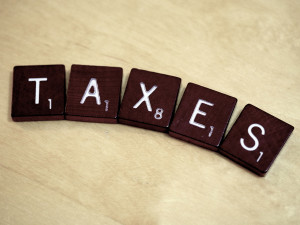 If you receive a phone call from someone claiming to be an IRS tax collector, you have a right to be suspicious. Since 2013, con artists have stolen tens of millions of dollars from innocent people by claiming to be collecting back taxes. The Treasury Inspector General for Tax Administration has received nearly 900,000 complaints regarding phone scams of this type.
If you receive a phone call from someone claiming to be an IRS tax collector, you have a right to be suspicious. Since 2013, con artists have stolen tens of millions of dollars from innocent people by claiming to be collecting back taxes. The Treasury Inspector General for Tax Administration has received nearly 900,000 complaints regarding phone scams of this type.
The IRS does use private collectors to gather back taxes owed to them. But this form of fraud is so common that you are safer assuming a caller is not legitimate, particularly if they ask you to make a wire transfer or use a prepaid debit card immediately to avoid penalties.
One hallmark of this tax scam is the aggressive and threatening nature of the calls. Scam artists need to get your money quickly—and without an obvious trail—to avoid landing in jail. They may threaten to have you arrested or deported. They may threaten to seize your bank accounts or repossess your vehicle. They may threaten to have your driver’s license revoked. In short, they will threaten you with anything to get your money.
What to Watch For
Scam artists behave in predictable ways. There are things you can look for to see if you are being targeted for fraud, including:
- IRS debts don’t often come as a surprise. If you have not received a tax bill from the IRS, a tax collector is unlikely to call you. If you haven’t received a tax bill or don’t think you are behind on your taxes, you should hang up on the “tax collector” immediately.
- There is no room for discussion. You are allowed to appeal an IRS finding that you owe back taxes. The IRS expects this. If the person on the phone doesn’t give you an opportunity to question or appeal the debt, he or she is likely not an IRS employee.
- The IRS does not seek your private information over the phone. The IRS knows your social security number. They likely know where you live. They have all the information about you they need. If the person on the phone demands your bank account number, debit card number, PIN number, credit card number or personal information, you are likely not dealing with the IRS.
- Private collectors for the IRS cannot accept direct payments. The IRS requires payments made to the U.S. Treasury, not to the collection agency. Prepaid credit cards and wire transfers are preferred by scam artists, not the IRS. If the person contacting you requests immediate payment and tries to dictate how you will pay, you are the focus of a scam and should hang up immediately.
- The IRS will not email, text or tweet you out of the blue. The IRS informs people of back taxes by mail. Electronic communications, email in particular, are a preferred tool of fraudsters. An email that seeks personal information is a sure sign of fraud. You should report it to the authorities as soon as possible.
Protect Your Money Now and in the Future
Your money is precious. You need it for your own living and entertainment expenses, and you also want to ensure you leave enough behind to continue to support your family when you are no longer here. Do not fall victim to tax scams. Be watchful, be diligent and stay on top of your estate—this includes tax planning, working with a CPA and working with a lawyer to create an estate plan that protects your assets.
What to Do About Tax Debts and Scam Artists
If you are unsure about a potential tax debt, or even if you know you owe back taxes, you still don’t have to deal with the stranger calling you. Hang up and call the IRS directly at 800-829-1040. If you do owe back taxes, you will at least be sure that an actual IRS worker is on the line to discuss the situation.
If you believe a tax scam artist has targeted you, call 800-366-4484 to report the violation.
Photo credit: Taxes by Lendingmemo
